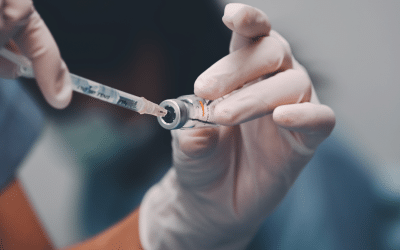The Health Bill was voted on by the members of parliament on December 1st, during a second reading, with 296 votes for the law, 243 against, and 16 abstentions, which is to say that with a majority weaker than in the first reading. It must be examined again by the Senate in a few days.
Presented by the Health Minister, Marisol Touraine in October 2014, the law had already been examined in a first reading by the National Assembly (voted on in April 2015), then by the Senate (voted on in October). Since the accelerated procedure was established by the government, there was no second reading. However, the two chambers failed in elaborating a consensus text during the Joint Committee (CMP) which followed at end of October. The text has just been examined another time by the MP’s, and it will be so by the senators from 14th to 16th of next December. A second CMP should follow, the result of which is uncertain: in the case of another failure, the MP’s will have the final say by an ultimate vote, which is expected before the end of December.
This law has become in the course of discussions a “catch-all” law. Initially it contained 57 articles and ended up with nearly 230 articles, described in 200 dense and complexe pages. It is still subject to numerous controversies on various subjects of society, such as generalizing direct payment of by national health insurance for medical consultations, “neutral” cigarette pack, experimenting “shooting rooms” for drug addicts, etc.
Many measures which raise important bioethical issues will be discussed again in the Senate mid-December:
Enabling midwives to practice medication abortions (article 31). In fact, the idea of this extension seems to be widely supported; the debate only remains on one sentence about “abortion for medical reasons” (IMG) that would remain solely the responsibility of doctors.
The creation of regional action plans to access abortion (article 38). This measure, discreetly introduced by an amendment at the end of the discussion at the National Assembly last April, could prove to have serious practical consequences. Based on an experimentation carried out in Ile de France, the idea is to set abortion quotas to be achieved in each hospital or clinic, as a percentage of the number of births. If health establishments from now on have a quota of abortions to complete each year, without doubt under the threat of financial penalties, isn’t it contradictory with the primary objective of preventing abortions, which aims at avoiding abortion as much as possible?
The permission to make research on gametes and embryos within Medically Assisted Procreation (MAP) (article 37). This is to permit, within MAP, biomedical research on gametes or on embryos in vitro, including for gestational purposes. The actual scope of this article is still to be assessed, in particular the content of these research and the role of the Biomedicine Agency which permits, until now, all embryo research. The government holds tight to this amendment introduced during the parliamentary discussion, undoubtedly under the pressure of researchers who pretend to be held back in their research by the current legal dispositions, although they were made largely more flexible since a 2013 law.
The post-mortem removal of organs without the consent of the relatives of the deceased (article 46ter). Up until now, the consent of the donor is assumed, except if expressly refused, but in practice, no organ removal is done if relatives oppose it. To obtain more grafts, from now on, one would no longer consider the relatives’ consent : they will simply be informed before the removal of organs, but their view will no longer be important. This idea provoked strong reluctance in the public opinion, notably among the professionals concerned.
The last three measures above had been removed by the senators last October. They have just been reintroduced by the Members of Parliament, and the senators will have to vote again on these issues in the days to come.
However, some articles were voted on by the two assemblies, and cannot be discussed any more. Amongst the most important ones regarding abortion: the removal of a week’s waiting period for reflection before an abortion (article 17bis) and the ability to practice instrumental abortions by doctors in health centers (article 16bis).
A last measure that concerns all families, but that was passed largely without notice, is to be mentioned: funeral care and embalming. The government has insisted on banning them at the place of residence where families often stay with their dead until the body is buried. To avoid sanitary risks, which in reality, are unproven, this type of care would only be possible in professional funeral homes. Officially, the idea was to remove the ban on embalming for people affected with the HIV virus or Hepatitis, which was claimed by many associations in the name of non-discrimination towards homosexual people. A majority of MP’s and senators refused this restriction of liberty which affects all the population, since other, less constraining, solutions can be considered.



